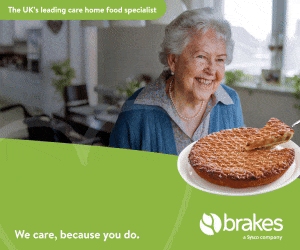Supporting care caterers
From expert food procurement to dietetic advice

Care caterers will recognise the challenge of creating nutritious meals tailored to residents individual needs. Especially when time, budgets and labour are tight. Here food procurement experts, allmanhall empathise and present some considerations to support care home catering teams.
Malnutrition
Care caterers can reduce residents’ risk of malnutrition through providing enticing and nourishing food. High-energy and high-protein meals are a key part of a care menu, using full-fat foods and offering lighter meal options for those who prefer a ‘little and often’ approach.
For more, read this blog.
Heart health
A Mediterranean diet is beneficial for heart health. Not lots of pizza and pasta, but instead an emphasis on fresh fruit and vegetables, both white and oily fish, wholegrains, lean meat and reduced saturated fat.
Read allmanhall’s complete guide here.
Dysphagia
Dysphagia relates to difficulty swallowing. Texture modifications are therefore essential, to ensure the food on offer is suitable for residents. This means food is moistened, mashed or pureed, making it safer for an individual to eat; fluids may also need to be thickened.
For more information, read this.
Dehydration
Caterers can play help tackle dehydration, finding creative ways to optimise fluid intake. For example, a daily ‘happy hour’ with juices and mocktails, or ice lollies from juice. Even adding a symbol to your menus for high-fluid content meals such as soup, jelly and yoghurt.
More guidance here.
Expert support
Food procurement experts allmanhall will help care home caterers save time, reduce costs and continue a focus on quality. In addition to food procurement, further support is provided by allmanhall through training and workshops, menu reviews, developing nutrition strategies and more.
To find out more about allmanhall, visit allmanhall.co.uk






